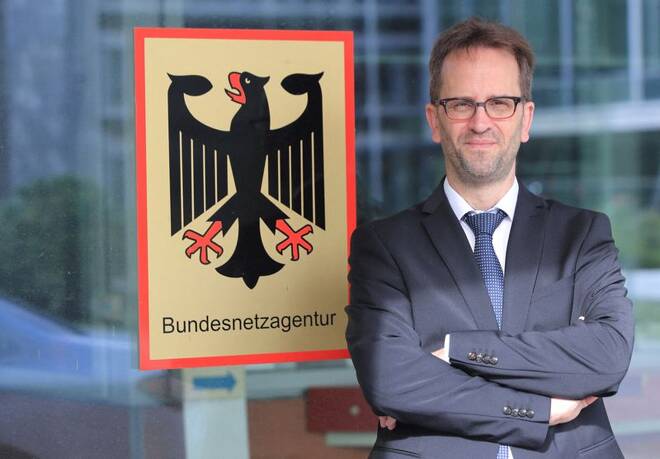Advertisement
Advertisement
German regulator hints at gas rationing priorities, Funke reports
By:
BERLIN (Reuters) - Germany's energy regulator has listed priority areas that would have protected access to power if there are severe gas shortfalls this winter, ranging from households and hospitals to pharmaceuticals companies and paper producers.
BERLIN (Reuters) – Germany’s energy regulator has listed priority areas that would have protected access to power if there are severe gas shortfalls this winter, ranging from households and hospitals to pharmaceuticals companies and paper producers.
Sharp cuts to deliveries of Russian gas through the Nord Stream pipeline have led authorities to make urgent preparations for a hard winter.
“We can’t classify every business as systemically important,” Klaus Mueller, head of Germany’s Federal Network Agency watchdog, told the Funke newspaper group in an interview published on Saturday.
“Products and services for entertainment will be less imoprtant … Swimming pools clearly aren’t critical and nor is chocolate biscuit making.”
While households are a top priority, Mueller didn’t rule out the possibility of power cuts.
“If it comes to rationing, we will have to reduce industrial consumption first,” he said.
“I can guarantee that we will do everything to avoid private households being left without gas. But we have learned from the coronavirus crisis that we shouldn’t make promises that we are not certain of being able to keep.”
Russia blames technical difficulties resulting from sanctions for Nord Stream pipeline flows being halved in recent weeks, though German officials say the cuts are retaliation for Western sanctions over the invasion of Ukraine.
Industrial consumers would be prioritised according to the commercial, economic and social impact of any power cuts, Mueller said, adding that paper would remain crucial for newspapers and medicine packaging.
“Press freedom is an important right: in a gas emergency there would be extremely high demand for information,” he said.
While Mueller emphasised that Germany did not face electricity, oil or petrol shortages, he said that households should still concentrate efforts on saving energy to reduce gas consumption.
Even if Russia halted gas flows completely, piped deliveries from Norway and the Netherlands would continue and liquified natural gas (LNG) would also arrive from overseas, Mueller added.
(Reporting by Thomas Escritt; Editing by David Goodman)
About the Author
Reuterscontributor
Reuters, the news and media division of Thomson Reuters, is the world’s largest international multimedia news provider reaching more than one billion people every day. Reuters provides trusted business, financial, national, and international news to professionals via Thomson Reuters desktops, the world's media organizations, and directly to consumers at Reuters.com and via Reuters TV. Learn more about Thomson Reuters products:
Advertisement
